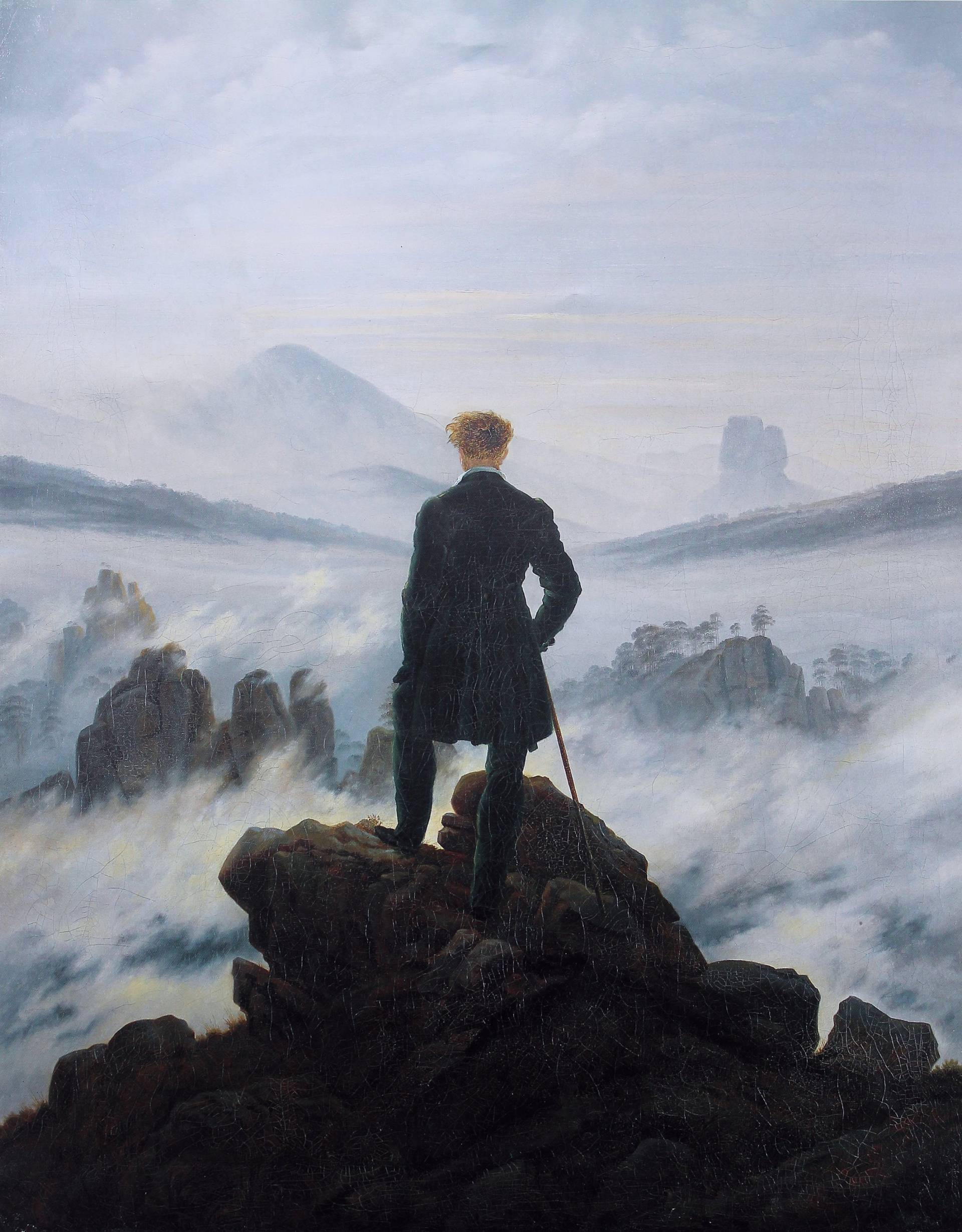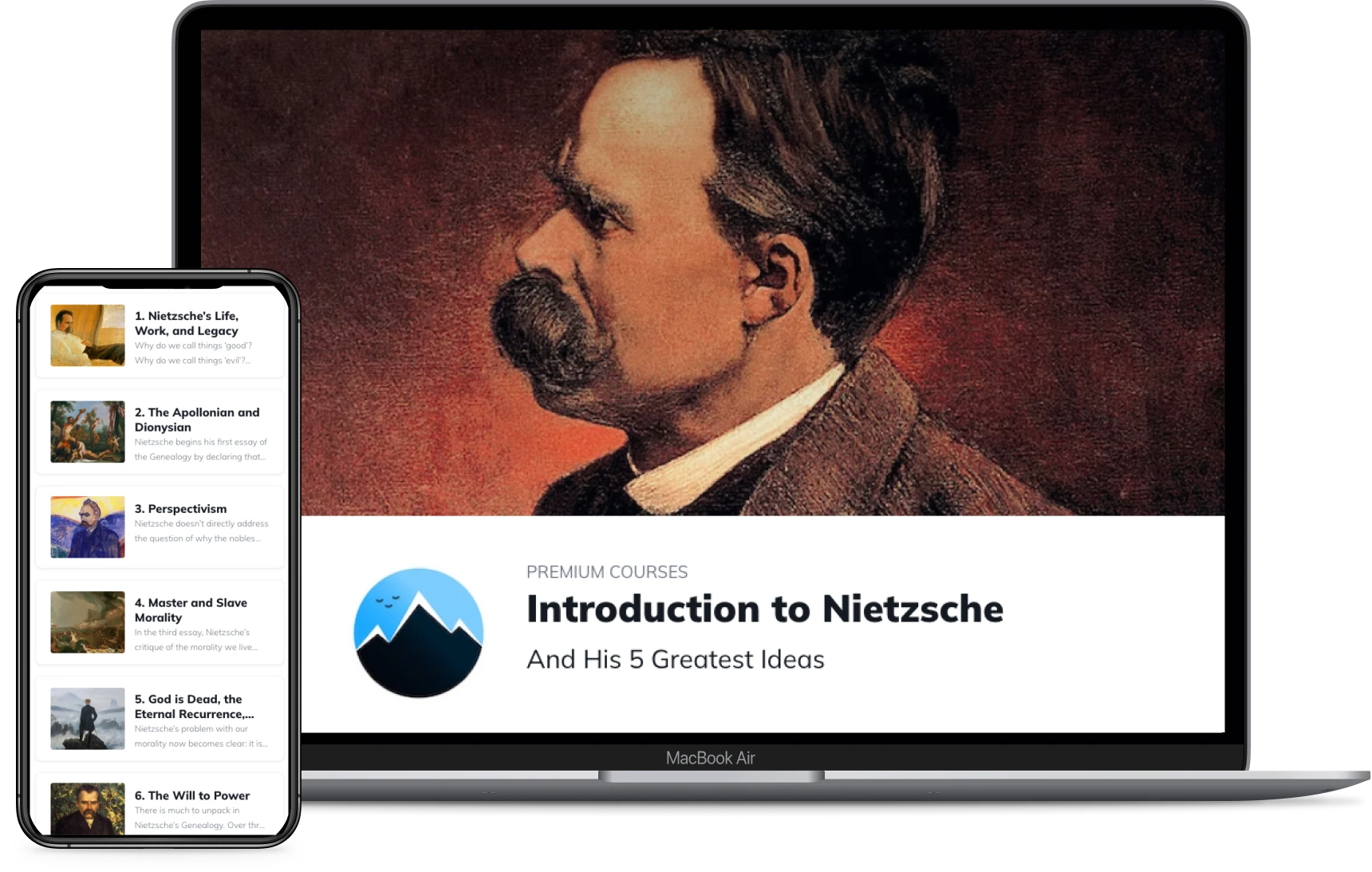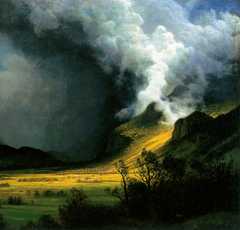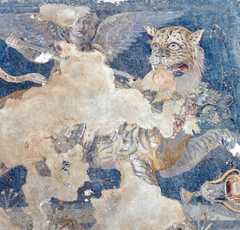
Übermensch Explained: the Meaning of Nietzsche’s ‘Superman’
Often misunderstood as a call for a superior human ‘race’, Nietzsche’s Übermensch is actually a call for personal self-discovery and self-overcoming. This article discusses why the idea of the Übermensch remains so influential.

What would the best version of ‘you’ be like? And what do you need to do in order to become that version? Furthermore, what does ‘best’ actually mean? By what standards are you judging yourself? Does the best version of you mean the fastest, strongest, kindest, funniest, most intelligent, most artistic, most compassionate, most disciplined version? Or, out of all the possible values you could embody, are some more important or ‘better’ than others?
It is normative questions such as these that the brilliant 19th-century philosopher Friedrich Nietzsche investigated throughout his work, particularly with his character of the Übermensch — meaning ‘superman’, ‘overman’, or ‘beyond-man’.
What is the Übermensch?
The Übermensch is Nietzsche’s vision of what we each could be, were we not so bogged down by outdated religions and moralities.
For Nietzsche, the Übermensch is a being who is able to completely affirm life: someone who says ‘yes’ to everything that comes their way; a being who is able to be their own determiner of value; sculpt their characteristics and circumstances into a beautiful, empowered, ecstatic whole; and fulfill their ultimate potential to become who they truly are.

To fully appreciate the significance of the Übermensch in Nietzsche’s philosophy, we must first understand the context of his thinking — for, writing at the end of the 19th century, Nietzsche repeatedly warns us that modernity is in crisis.
God is dead
Following the enlightenment and the separation of church and state across Europe, Nietzsche notes that Christianity does not have the authority or legitimacy it once had. In fact, God is dead. And that means everything built on top of God, including the entire Western value system, is destined for collapse.
The trouble is, many people haven’t realized this yet. As we discuss in our short explainer piece on Nietzsche’s infamous ‘God is dead’ declaration, many in Nietzsche’s day greeted the decline of Christianity with a shrug, or even jubilation.
Nietzsche thought these were the wrong reactions.
While Nietzsche is no fan of Christianity, he recognizes that the removal of its values is dangerous. Christianity, flawed though it is, at least provides some structure and meaning to people’s lives. It offers not just a set of values but a coping mechanism for suffering.
Erode Christian values — erode the coping mechanism — and how will people bear existence? As Kierkegaard also questions when discussing purpose in life, how will humanity stand the yawning abyss of meaninglessness? How will they deal with the inevitable pain and suffering that all humans, living imperfect mortal lives, must face?

From the Buddha to Nietzsche: join 11,000+ subscribers enjoying my free Sunday Breakdown
In one concise email each Sunday, I break down a famous idea from philosophy. You get the distillation straight to your inbox.
💭 One short philosophical email each Sunday. Unsubscribe any time.
The Last Man
Nietzsche worried that, if we’re not careful, the death of God would lead to a deep nihilism. Recognizing Western values (derived from Christianity) as foundationless, yet not proactively replacing them with anything, we’d inevitably end up burying our existential angst deep down. We’d pick our fates from one of the following: delude ourselves with false beliefs, become irretrievably depressed, or distract ourselves with vacuous pursuits and meaningless entertainment.
Nietzsche characterizes this predicament in his 1883-5 work Thus Spoke Zarathustra, presenting us with a devastating sketch of an apathetic, shallow, distracted humanity:
Behold! I shall show you the Last Man....The earth has become small, and upon it hops the Last Man, who makes everything small... A little poison now and then: that produces pleasant dreams. And a lot of poison at last, for a pleasant death. They still work, for work is entertainment. But they take care the entertainment does not exhaust them... No herdsmen and one herd. Everyone wants the same thing, everyone is the same: whoever thinks otherwise goes voluntarily into the madhouse... ‘We have discovered happiness,’ say the Last Men, and blink.
So, what’s the solution? How can we avoid becoming the Last Man? Following the death of God, how can we avoid slipping into a deep nihilism, without numbing ourselves with meaningless entertainment, or deluding ourselves with (now obviously false) religions and baseless moralities?
Übermensch: determine your own values
Enter Nietzsche’s Übermensch, an alternative future for humanity, where we need not rely on any standard of values but our own.
The idea of the Übermensch fills the void left by the death of God. Defying nihilism, it provides a new basis for value.
For Nietzsche doesn’t only want to dismantle decaying, unhealthy Christian values; with his Übermensch, he wants to provide us with a template, a vision, for something better.
One of the main problems Nietzsche has with Christian values is they aspire to what he calls an ‘ascetic ideal’: the denial of inner drives or desires we cannot help but have (like those for food or sex) in the name of ‘virtue’. This repression, this invention of ‘sin’, is psychologically unhealthy, and leads to perpetual guilt and self-loathing.
Nietzsche thinks we must thus discard notions of ‘sin’ and asceticism and rebuild our value systems in healthier, life-affirming ways. As he notes in his 1889 work, Twilight of the Idols:
The church combats the passions by cutting them off in every sense: its technique, its ‘cure’ is castration. It never asks: ‘how can a desire be spiritualized, beautified, deified?’
Nietzsche’s Übermensch, by contrast, does ask such questions. And, in his 1882 work The Gay Science, Nietzsche provides an early sketch of how such questions might be answered:
To ‘give style’ to one’s character — a great and rare art! It is practiced by those who survey all the strengths and weaknesses that their nature has to offer and then fit them into an artistic plan until each appears as art and reason and even weaknesses delight the eye.
Assess the strengths and weaknesses of your character. Weaknesses need not be hidden or repressed, Nietzsche advises: they are part of you, and can appear beautiful if molded according to a particular ‘artistic plan’. He continues:
Here a great mass of second nature has been added; there a piece of first nature removed — both times through long practice and daily work at it. Here the ugly that could not be removed is concealed; there it is reinterpreted into sublimity. Much that is vague and resisted shaping has been saved and employed for distant views—it is supposed to beckon towards the remote and immense.
With work, we can shape ourselves into something beautiful — where even the ugly, undesirable, unchangeable parts of ourselves can be used to lend intrigue, mystique, depth.
The target of self-discipline, then, should not be self-castigation or self-loathing or repression — as Nietzsche thinks it often is with ascetic religious traditions — but rather self-stylization and mastery.
In one concise email each Sunday, I break down a famous idea from philosophy. You get the distillation straight to your inbox:
💭 One short philosophical email each Sunday. Unsubscribe any time.
Not the rejection of our desires, not the denial of the urges and forces that make up our lives, but the sublimation, sculpting and channeling of them into a psychologically healthy and beautiful creation, an aesthetic whole. As Nietzsche finishes the passage:
In the end, when the work is complete, it becomes clear how it was the force of a single taste that ruled and shaped everything great and small…
For, Nietzsche suggests, it is by living up to an independent aesthetic, rather than to an external ‘ethical’ standard, that humans can truly fulfill their potential. As he famously declares in his 1872 work, The Birth of Tragedy (in a typically compelling statement that features in our list of Nietzsche’s best quotes):
It is only as an aesthetic phenomenon that existence and the world are eternally justified.
Übermensch: human become God
When announcing the death of God, Nietzsche questions: “Is not the greatness of this deed too great for us? Must we ourselves not become gods simply to appear worthy of it?” The Übermensch is the answer to this question: he is human-become-god.
Rather than look externally, the Übermensch is his own determiner of value. He transcends the petty needs of ‘man’ and moves beyond illusions to live and take joy in the here and now of life on Earth. He affirms his own character, and has the power and fortitude to say ‘yes’ to all of life’s joys and all of life’s pains.

Your Myth-Busting Guide to Nietzsche & His 5 Greatest Ideas
From God is dead to the Übermensch, learn everything you need to know about Friedrich Nietzsche with our concise online guide.
Get Instant Access★★★★★ (50+ reviews for our courses)
So, though some popular interpretations of Nietzsche’s concept of the Übermensch say it hints at some sort of superior human race — as the Nazis, for instance, tragically had it — it is more about self-overcoming, rather than necessarily overcoming other people. As the philosopher Jacob Golomb puts it in his 2013 essay, Will to Power (which features in The Oxford Handbook of Nietzsche):
Nietzsche’s Übermensch is one who has used this power to sublimate his naturally conflicting drives into a unified and authentic whole; he is one who has overcome his own ‘human, all too human’ nature; rather than one who tries to literally overcome other humans, as the most facile interpretations would have it.
How can the Übermensch emerge?
Nietzsche sees the Übermensch as a potential endpoint for humanity. However, becoming Übermensch is far from guaranteed. The much easier, and much more likely, possibility is that following the death of God we give into nihilism and become the Last Man. In the prologue of Thus Spoke Zarathustra (which features on our list of the best books by and about Nietzsche), Nietzsche thus writes:
Man is a rope, fastened between animal and Übermensch — a rope over an abyss.
So, how can we become Übermensch, rather than succumb to Nietzsche’s Last Man?
In Thus Spoke Zarathustra, Nietzsche places the burden on us as individuals. He has Zarathustra preach a process of self-overcoming: we must throw off the chains of religion and morality. We must give style to our characters and act like the poets of our own lives, not mere members of a frightened, apathetic herd. We must each revalue our values to become who we really are. Zarathustra declares:
I teach you the Übermensch. Man is something that should be overcome. What have you done to overcome him?
And, considering this is very much a personal project: one where we must determine and affirm our own values and sculpt our own, unique inner drives into something complete in their own authentic way, there is no one-size-fits-all solution.
Not everyone can become Shakespeare, Napoleon, or Wagner — figures who, though not quite ‘Übermensch’ standard, Nietzsche admired and upheld as examples of great individuals who powerfully organized themselves around a single purpose, a single taste, and furthered humanity in some way. Indeed, as Zarathustra advises:
You have your way, I have my way. As for the right way, the correct way, the only way, it does not exist.
What is the aesthetic vision around which you could organize yourself to fulfill your greatest potential?
Does the Übermensch embody any general values?
While the Übermensch is less about the type or nature of particular desires, drives, or values themselves, and more about how they are affirmed, sculpted, and deified by the individual who has them, there are perhaps some general value principles we can derive from Nietzsche’s picture.
Indeed, it seems it is values like independence, self-realization, personal liberation, self-determination, and psychological completeness and health that are most prominent in Nietzsche’s Übermensch.
As we discuss in our overview of Nietzsche’s life, insanity, and legacy, Nietzsche sought to cultivate such values in his own lifestyle, hiking alone in the Swiss Alps as he did, and recording the significant epiphanies he had while up there.
Presumably it was during such a mountainside epiphany that he was inspired to recognize that we do not need promises of the afterlife to find joy in existence on Earth, declaring through Zarathustra:
The Übermensch shall be the meaning of the earth! I entreat you my brethren, remain true to the earth, and do not believe those who speak to you of supra-terrestrial hopes! … Behold, I teach you the Übermensch: he is this lightning, he is this madness! … Behold, I am a prophet of the lightning and a heavy drop from the cloud: but this lightning is called Übermensch.
There is no life beyond this one on Earth — and according to Zarathustra’s preaching of the eternal recurrence (see our quick eternal recurrence explainer here), it’s a life that will recur again and again for eternity.
So what could possibly be advised other than to become the best version of exactly who you are, to embrace all that comes your way, to practice amor fati, to take joy in every single moment?
Is the Übermensch possible, or even desirable?
The cryptic nature of Thus Spoke Zarathustra, the work in which Nietzsche’s discussion of the Übermensch mostly took place, means it is open for much interpretation, and leaves us with a number of questions.
For instance: do you think humanity is capable of what Nietzsche describes as ‘self-overcoming’, of becoming a being resembling the Übermensch? Moreover, what would a world of Übermensch look like? Is a happy society filled with independent, self-determining Übermensch realistic?
Some scholars point out that Nietzsche never suggests the Übermensch is accessible to all. In fact, the purpose of most people in society is to prepare the conditions that would allow such special individuals to flourish. On this reading, the Übermensch is — like a new and improved Zarathustra — a new prophet, a unique individual that creates value grounded in this world, without appeal to anything transcendent. This individual would lead humanity into the next phase of our psychological growth.
Regardless of its accessibility, here are some additional questions we might have about the Übermensch project in general: are all human ‘drives’ permissible? What about our drives for cruelty? How can we channel those in positive ways? How can we make cruelty beautiful? Is cultivating our lives and characters so that they’re beautiful as an ‘aesthetic package’ more important than, say, fighting for justice? Should we really aspire to live aesthetically rather than ethically?
Learn more about Nietzsche’s philosophy
If you’re interested in learning more about Nietzsche, then consider exploring my fuller Introduction to Nietzsche guide, of which this article was an extract.
You might also like the following related reads:
- Friedrich Nietzsche’s Life, Insanity, and Legacy
- God is Dead: Nietzsche’s Most Famous Statement Explained
- Eternal Recurrence: What Did Nietzsche Really Mean?
- Amor Fati: the Stoics’ and Nietzsche’s Different Takes on Loving Fate
- The Apollonian and Dionysian: Nietzsche On Art and the Psyche
- Friedrich Nietzsche: the Best 9 Books to Read
Finally, if you enjoyed this article, you might like my free Sunday breakdown. I distill one piece of wisdom from philosophy each week; you get the summary delivered straight to your email inbox, and are invited to share your view. Consider joining 11,000+ subscribers and signing up below:

From the Buddha to Nietzsche: join 11,000+ subscribers enjoying my free Sunday Breakdown
In one concise email each Sunday, I break down a famous idea from philosophy. You get the distillation straight to your inbox.
💭 One short philosophical email each Sunday. Unsubscribe any time.
About the Author

Get one mind-opening philosophical idea distilled to your inbox every Sunday (free)

From the Buddha to Nietzsche: join 11,000+ subscribers enjoying a nugget of profundity from the great philosophers every Sunday:
★★★★★ (50+ reviews for Philosophy Break). Unsubscribe any time.

Take Another Break
Each break takes only a few minutes to read, and is crafted to expand your mind and spark your philosophical curiosity.





